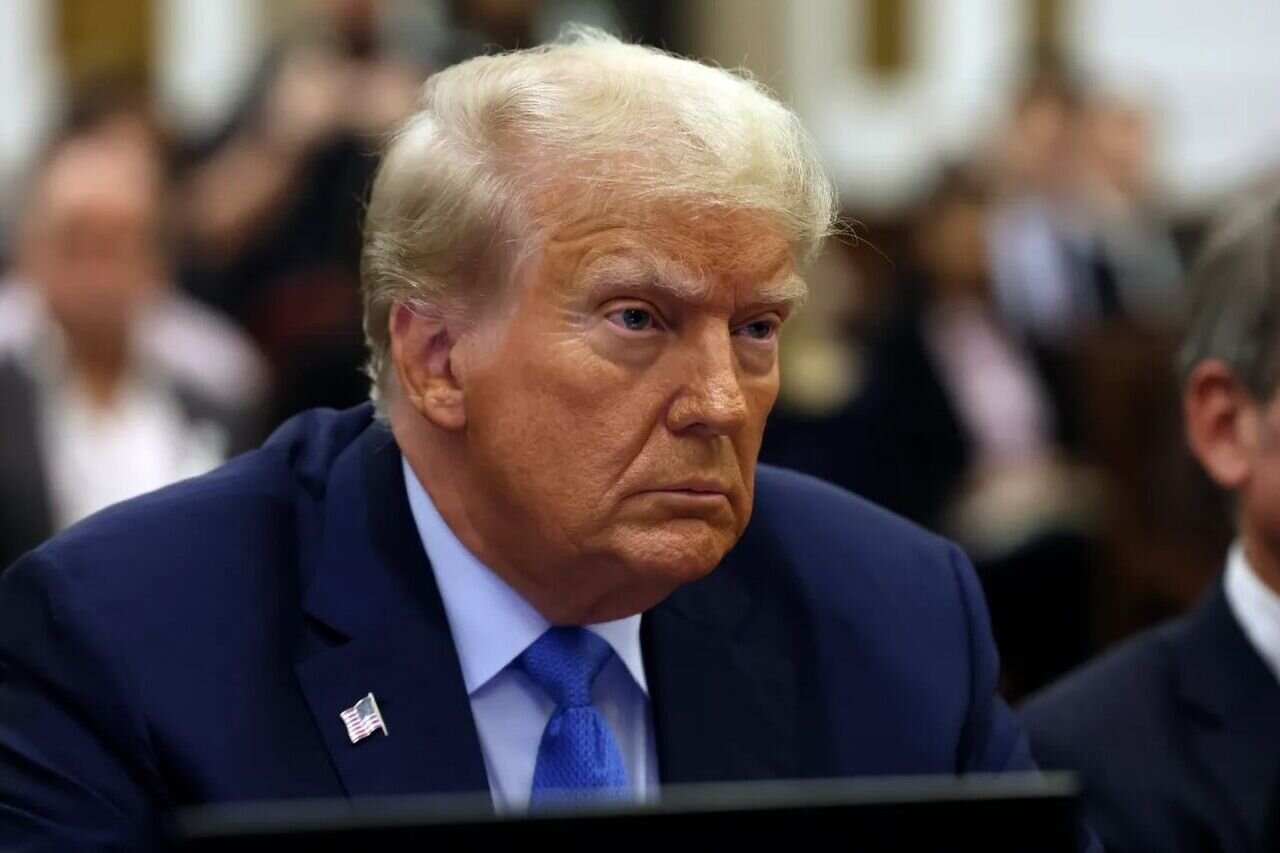Iran will never pay ransom to killer of General Soleimani: report

TEHRAN- An American think tank wrote in a report that if Trump comes back, the Iranians will not pay him ransom for ordering the assassination of General Soleimani.
Amidst the wars in Gaza and Ukraine, the issue of Iran’s nuclear program has been sidelined, but it seems that Americans are trying to find new ways to prevent Iran’s nuclear power on the eve of the presidential elections.
Stimson Center in a report by Barbara Slavin, an expert on Iran, writes that the nuclear agreement with Iran fell apart after Trump’s administration withdrew from the JCPOA in 2018, while Tehran fully adhered to it.
Iran waited for a year to surpass the JCPOA restrictions, and efforts by the Biden administration, the EU, and others to restore the agreement failed.
It is claimed that in September 2023, Tehran and the United States were able to reach an informal agreement to reduce tensions by reducing Iran’s 60% uranium enrichment speed and release two Iranian-American dual citizens.
In return for such an agreement, the United States reduced efforts to prevent Iran’s oil exports and gave the green light to South Korea to release six billion dollars of Iran’s oil revenue blocked in the country’s banks due to U.S. sanctions.
This money was transferred to Qatari banks, but negotiations were halted again after increased tensions between the U.S. and quasi-military groups in the region and Israel’s attack on Gaza.
Slavin also pointed out that the clashes in Gaza postponed a meeting that was supposed to be held in late October in Oman between Iranian officials and Brett McGurk, the White House coordinator for the Middle East and North Africa.
According to media reports, McGurk participated in indirect negotiations with Iran in Oman in January 2024, but the main goal was to encourage Iran to pressure Yemeni forces to stop their attacks on shipping in the Red Sea.
The second session in February was postponed because the Biden administration was focused on a ceasefire between Tel Aviv and Hamas and the release of Israeli hostages.
The claim by this think tank regarding negotiations on the Red Sea and Yemen between Iran and the United States had been previously reported by other Western media outlets. In this regard, an informed source, while rejecting such a spurious claim, said that the indirect negotiations between Tehran and Washington were only about lifting sanctions and did not include other issues.
Furthermore, the American think tank has claimed that Iranian officials insist that the only thing that can provoke them to produce nuclear weapons is an attack by the United States or Israel on their country, which currently seems unlikely.
With the closing of the window for progress in negotiations during the first term of the Biden presidency, it appears that Iranian officials are trying to increase their leverage if Donald Trump returns to the White House.
They also understand that Biden is not inclined to give significant concessions during the election year, as he has previously been accused of being soft on Iran. However, whoever wins the election will have to address this issue soon, as the UN Security Council resolution on the JCPOA expires in October 2025.
It also stated that Iranians, based on their experience of Trump’s withdrawal from the JCPOA, are seeking assurances.
One idea is to allow Iran to keep a large amount of 60% enriched uranium under the supervision of the International Atomic Energy Agency on Iranian soil, but it seems that this cannot be initiated unless Iran significantly increases transparency about its program and restores some of the JCPOA monitoring measures.
This may involve restoring the IAEA’s daily access to Iran’s main enrichment facilities in Natanz and Fordow, as well as allowing inspections of centrifuge production sites.
Another idea is to use the revival of diplomatic relations between Iran and Saudi Arabia to create a regional consensus where, in exchange for some nuclear concessions, Iran is compensated by Arab investments.
This could also include regional cooperation in non-military nuclear energy, especially in nuclear facility safety. While Saudis are eager to develop their own nuclear energy, and the United Arab Emirates is launching its fourth nuclear reactor, such regional cooperation under IAEA supervision could be a useful confidence-building step.
The report concludes by stating that Iran, like other parts of the world, is trying to prepare itself for the possibility of a second Trump administration.
Trump’s advisors have generally been tough on Iran and have promised to increase the so-called maximum pressure policy. However, Saudis and Emiratis may advise Trump to change this policy.
Trump promised during his first presidential election campaign to cancel the JCPOA, which he called the worst deal negotiated so far. However, this does not mean he will not try to find a replacement. It should be noted that Iranians may not be inclined to reward a man who ordered the assassination of Qasem Soleimani, their most famous general, in 2020.
Leave a Comment